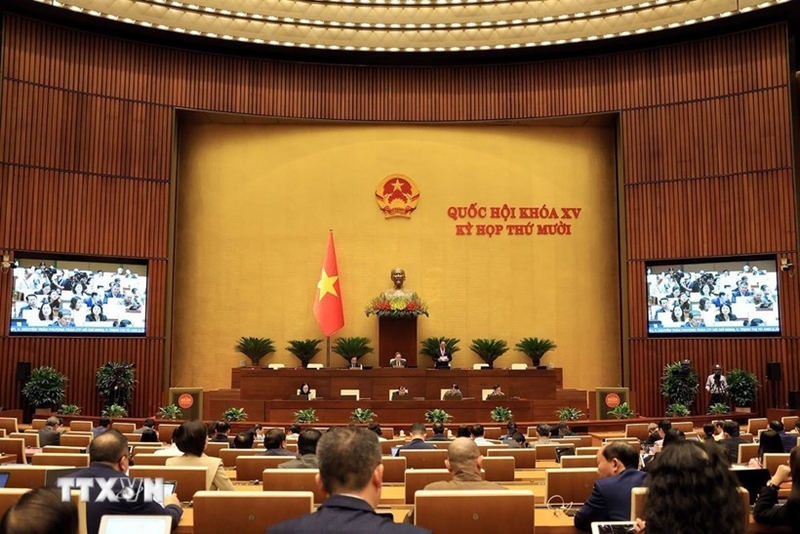The program seeks to standardize and comprehensively modernize the education and training system, drive a substantial improvement in education quality, expand learning opportunities, ensure equitable access and promote lifelong learning. It also aims to better meet the country’s increasing demand for human resources, particularly high-quality personnel, amid globalization, technological advancement, innovation and digital transformation.
    |
 |
|
An overview of the tenth session of the National Assembly |
The program outlines four key targets for 2030, including the modernization of about eight major public universities to help them enter the top 200 Asian institutions, and at least one public university reaching the global top 100 in selected priority fields.
By 2035, all preschools and general schools are expected to meet infrastructure standards and be equipped to introduce English as a second language across the school system.
The N.A. will also review the proposed national target program on healthcare, population and development for 2026-2035, which aims to improve physical and mental well-being, stature, life expectancy and overall quality of life. The program focuses on expanding access to quality primary healthcare, fostering pro-active self-care, strengthening early and grassroots-level disease prevention, addressing priority population issues, responding to demographic ageing and enhancing support for vulnerable groups.
Its specific targets include raising the proportion of communes, wards, and special zones meeting the National Criteria for Commune Health to 90% by 2030 and 95% by 2035. By 2030, all citizens are expected to have electronic health records and lifelong health management, with full coverage maintained through 2035.
In the afternoon, the N.A. is scheduled to debate the revised Law on Drug Prevention and Control in the plenary hall.
Source: VNA